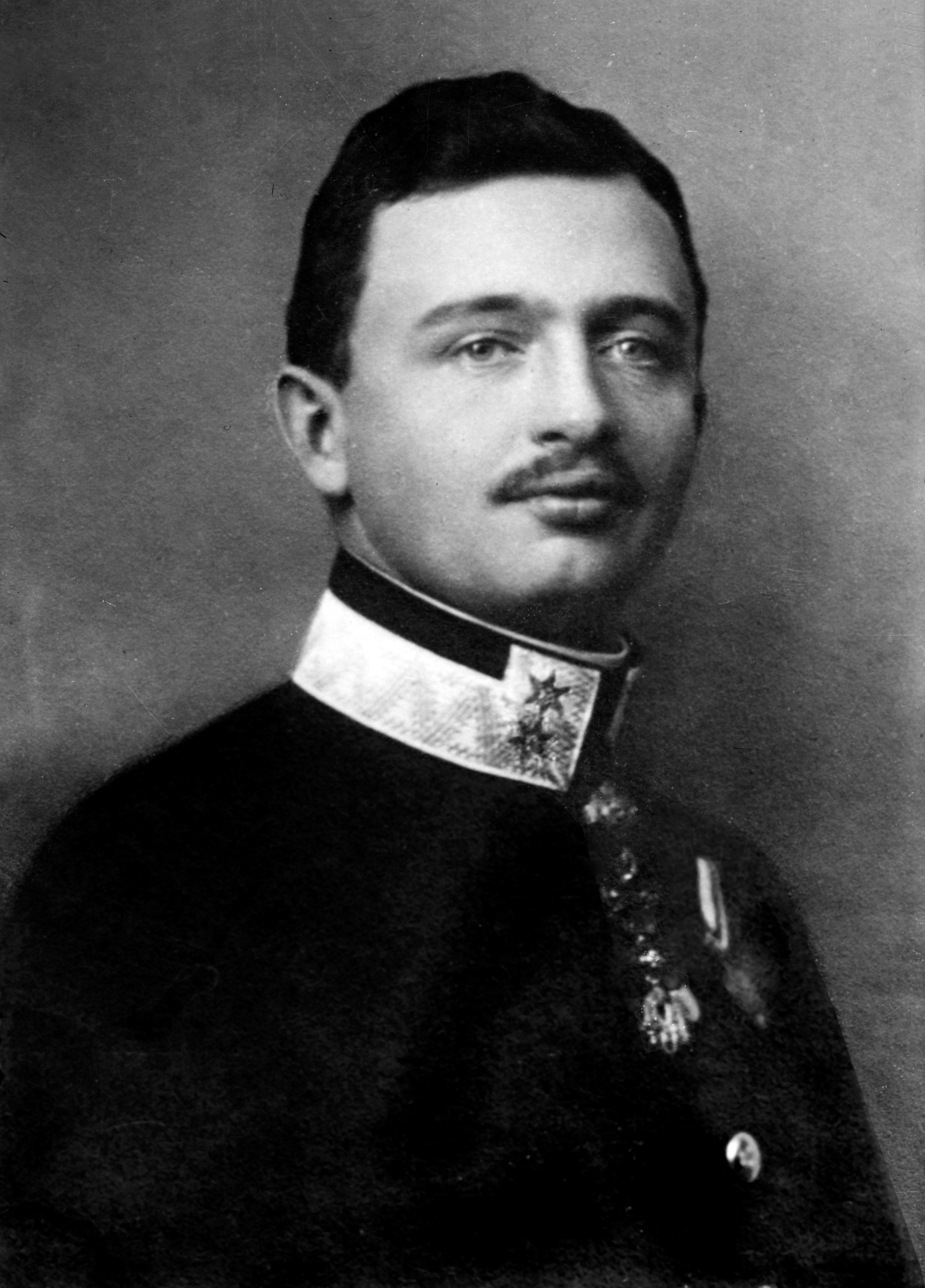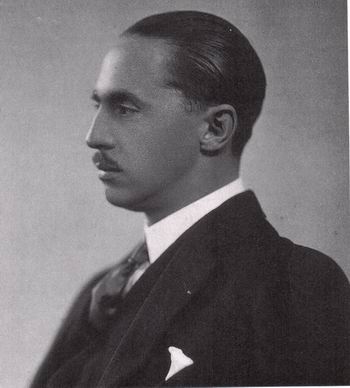Sixtus Affair on:
[Wikipedia]
[Google]
[Amazon]

 The Sixtus Affair (, hu, Sixtus-ügy) was a failed attempt by Emperor
The Sixtus Affair (, hu, Sixtus-ügy) was a failed attempt by Emperor
 Sixtus arrived with French-agreed conditions for talks: the restoration to France of Alsace-Lorraine (annexed by Germany after the Franco-Prussian War in 1870); restoration of the independence of Belgium; independence for the kingdom of Serbia; and the handover of
Sixtus arrived with French-agreed conditions for talks: the restoration to France of Alsace-Lorraine (annexed by Germany after the Franco-Prussian War in 1870); restoration of the independence of Belgium; independence for the kingdom of Serbia; and the handover of
online
* Keleher, Edward P. "Emperor Karl and the Sixtus Affair: Politico-Nationalist Repercussions in the Reich German and Austro-German Camps, and the Disintegration of Habsburg Austria, 1916-1918." ''East European Quarterly'' 26.2 (1992): 163+. * Marchling, Charles. "The Sixtus Affair" ''History Today''. (Nov 1973), Vol. 23 Issue 11, pp 757-765 online. {{DEFAULTSORT:Sixtus Affair Political scandals Austria-Hungary in World War I History of Austria-Hungary 1917 in Austria-Hungary

 The Sixtus Affair (, hu, Sixtus-ügy) was a failed attempt by Emperor
The Sixtus Affair (, hu, Sixtus-ügy) was a failed attempt by Emperor Charles I of Austria
Charles I or Karl I (german: Karl Franz Josef Ludwig Hubert Georg Otto Maria, hu, Károly Ferenc József Lajos Hubert György Ottó Mária; 17 August 18871 April 1922) was Emperor of Austria, King of Hungary (as Charles IV, ), King of Croatia, ...
to conclude a separate peace with the allies in World War I
World War I (28 July 1914 11 November 1918), often abbreviated as WWI, was List of wars and anthropogenic disasters by death toll, one of the deadliest global conflicts in history. Belligerents included much of Europe, the Russian Empire, ...
. The affair was named after his brother-in-law and intermediary, Prince Sixtus of Bourbon-Parma
Prince Sixtus of Bourbon-Parma (; 1 August 1886 – 14 March 1934) was a member of the House of Bourbon-Parma, a Belgian officer in World War I, and the central figure in the Sixtus Affair, an attempt to negotiate a treaty to end Austria-Hungary' ...
.
Affair
In 1917 the war was dragging on towards its fourth year, and Charles decided to secretly enter into peace negotiations with France. He used his brother-in-law, PrinceSixtus of Bourbon-Parma
Prince Sixtus of Bourbon-Parma (; 1 August 1886 – 14 March 1934) was a member of the House of Bourbon-Parma, a Belgian officer in World War I, and the central figure in the Sixtus Affair, an attempt to negotiate a treaty to end Austria-Hungary' ...
, an officer in the Belgian army, as intermediary as well as enlisting the help of his loyal childhood friend and aide-de-camp Tamás Erdődy
Count Tamás Erdődy de Monyorókerék et Monoszló (, ; 1558 – 17 January 1624), also anglicised as Thomas Erdődy, was a Hungarian-Croatian nobleman, who served as Ban of Croatia between 1583-1595 and 1608-1615 and a member of the Erdődy magna ...
. Charles initiated contact with the Prince via contacts in neutral Switzerland, and Empress Zita
Zita of Bourbon-Parma (''Zita Maria delle Grazie Adelgonda Micaela Raffaela Gabriella Giuseppina Antonia Luisa Agnese''; 9 May 1892 – 14 March 1989) was the wife of Charles I of Austria, Charles, the last monarch of Austria-Hungary. As such, sh ...
wrote a letter inviting him to Vienna. Zita's mother Maria Antonia Maria Antonia is a feminine Portuguese language, Portuguese given name from the root names Miriam (given name), Miriam and Antonius. Notable people referred to by this name include the following:
* Maria Antonia of Austria (1669–1692) daughter of ...
delivered the letter personally. Another intermediary was Jozef Retinger
Jozef or Józef is a Dutch, Breton, Polish and Slovak version of masculine given name Joseph. A selection of people with that name follows. For a comprehensive list see and ..
* Józef Beck (1894–1944), Polish foreign minister in the 1930s
* J ...
, a London-based Polish literary scholar and budding politician who was a friend of Sixtus, Xavier and Zita of Bourbon-Parma and who had received backing from the British to support the initiative.
 Sixtus arrived with French-agreed conditions for talks: the restoration to France of Alsace-Lorraine (annexed by Germany after the Franco-Prussian War in 1870); restoration of the independence of Belgium; independence for the kingdom of Serbia; and the handover of
Sixtus arrived with French-agreed conditions for talks: the restoration to France of Alsace-Lorraine (annexed by Germany after the Franco-Prussian War in 1870); restoration of the independence of Belgium; independence for the kingdom of Serbia; and the handover of Constantinople
la, Constantinopolis ota, قسطنطينيه
, alternate_name = Byzantion (earlier Greek name), Nova Roma ("New Rome"), Miklagard/Miklagarth ( Old Norse), Tsargrad ( Slavic), Qustantiniya (Arabic), Basileuousa ("Queen of Cities"), Megalopolis ( ...
to Russia. Charles agreed, in principle, to the first three points and wrote a letter dated 24 March 1917 to Sixtus, giving "the secret and unofficial message that I will use all means and all my personal influence" to the President of France.
This attempt at dynastic diplomacy eventually foundered. Germany refused to negotiate over Alsace-Lorraine and, seeing a Russian collapse on the horizon, was loath to give up the war.
In April 1918, after the German-Russian Treaty of Brest-Litovsk
The Treaty of Brest-Litovsk (also known as the Treaty of Brest in Russia) was a separate peace treaty signed on 3 March 1918 between Russia and the Central Powers (Germany, Austria-Hungary, Bulgaria, and the Ottoman Empire), that ended Russia's ...
, the Austrian Foreign Minister Count Ottokar von Czernin
Ottokar Theobald Otto Maria ''Graf'' Czernin von und zu Chudenitz ( cs, Otakar Theobald Otto Maria hrabě Černín z Chudenic; 26 September 1872 – 4 April 1932) was an Austro-Hungarian diplomat and politician during the time of World War I, nota ...
made a speech attacking the incoming French Prime Minister Georges Clemenceau
Georges Benjamin Clemenceau (, also , ; 28 September 1841 – 24 November 1929) was a French statesman who served as Prime Minister of France from 1906 to 1909 and again from 1917 until 1920. A key figure of the Independent Radicals, he was ...
as being the main obstacle to a peace favouring the Central Powers
The Central Powers, also known as the Central Empires,german: Mittelmächte; hu, Központi hatalmak; tr, İttifak Devletleri / ; bg, Централни сили, translit=Tsentralni sili was one of the two main coalitions that fought in ...
. Clemenceau was incensed and had Emperor Charles' letter to Prince Sixtus published. For a while, there were fears that Germany might occupy Austria. Czernin persuaded Charles to send a 'Word of Honour' to Austria's allies saying that Sixtus had not been authorised to show the letter to the French Government, that Belgium had not been mentioned, and that Clemenceau had lied about the mentioning of the Alsace. Czernin had actually been in contact with the German Embassy throughout the whole crisis, and was attempting to persuade the Emperor to step down because of the Affair. After this failed, Czernin resigned himself.
This affair was an embarrassment to Charles and forced Austria-Hungary into an even more dependent position with regard to its German ally.
Beatification of Charles I
For his role as a peacemaker during 1917–1918, Emperor Charles I of Austria was solemnly declared blessed in a Mass of Beatification on 3 October 2004 byPope John Paul II
Pope John Paul II ( la, Ioannes Paulus II; it, Giovanni Paolo II; pl, Jan Paweł II; born Karol Józef Wojtyła ; 18 May 19202 April 2005) was the head of the Catholic Church and sovereign of the Vatican City State from 1978 until his ...
.
In popular culture
* In ''The Young Indiana Jones Chronicles
''The Young Indiana Jones Chronicles'' is an American television series that aired on ABC from March 4, 1992, to July 24, 1993. Filming took place in various locations around the world, with "Old Indy" bookend segments filmed in Wilmington, Nort ...
'' episode "Austria, March 1917" (later re-edited into the film ''Adventures in the Secret Service''), Indiana Jones
''Indiana Jones'' is an American media franchise based on the adventures of Dr. Henry Walton "Indiana" Jones, Jr., a fictional professor of archaeology, that began in 1981 with the film ''Raiders of the Lost Ark''. In 1984, a prequel, '' The ...
(working for French Intelligence during World War I) is assigned to smuggle Sixtus and Xavier in and out of Austria for their meeting with Emperor Charles I.''The Young Indiana Jones Chronicles
''The Young Indiana Jones Chronicles'' is an American television series that aired on ABC from March 4, 1992, to July 24, 1993. Filming took place in various locations around the world, with "Old Indy" bookend segments filmed in Wilmington, Nort ...
'', American Broadcasting Company, "Austria, March 1917", September 21, 1992
References
Further reading
* de Hevesy, William. "Postscript to the Sixtus Affair." ''Foreign Affairs'' 21.3 (1943): 566-570online
* Keleher, Edward P. "Emperor Karl and the Sixtus Affair: Politico-Nationalist Repercussions in the Reich German and Austro-German Camps, and the Disintegration of Habsburg Austria, 1916-1918." ''East European Quarterly'' 26.2 (1992): 163+. * Marchling, Charles. "The Sixtus Affair" ''History Today''. (Nov 1973), Vol. 23 Issue 11, pp 757-765 online. {{DEFAULTSORT:Sixtus Affair Political scandals Austria-Hungary in World War I History of Austria-Hungary 1917 in Austria-Hungary